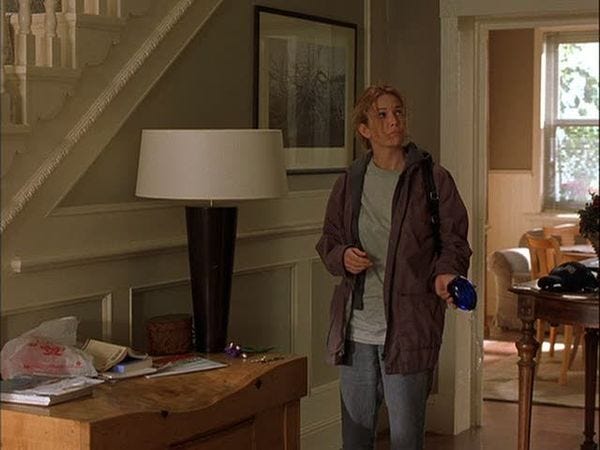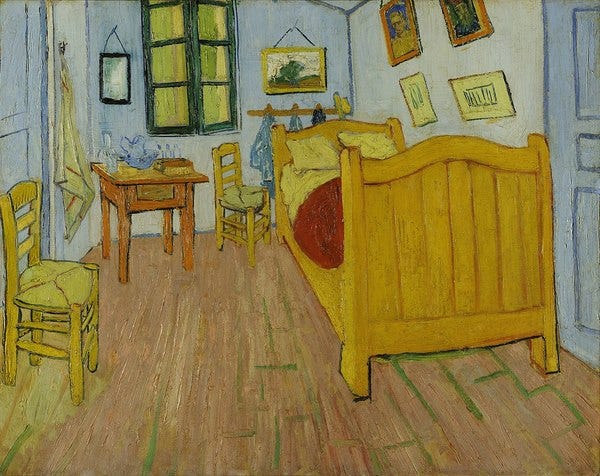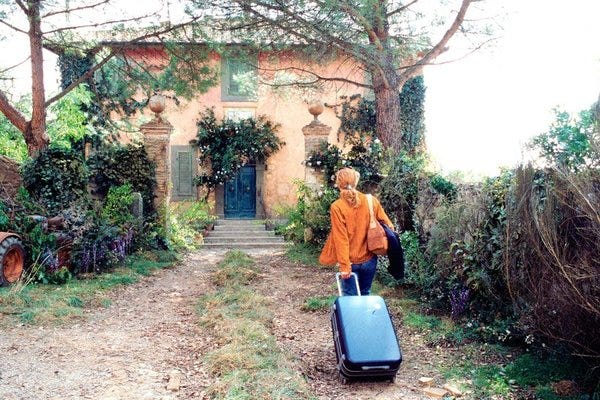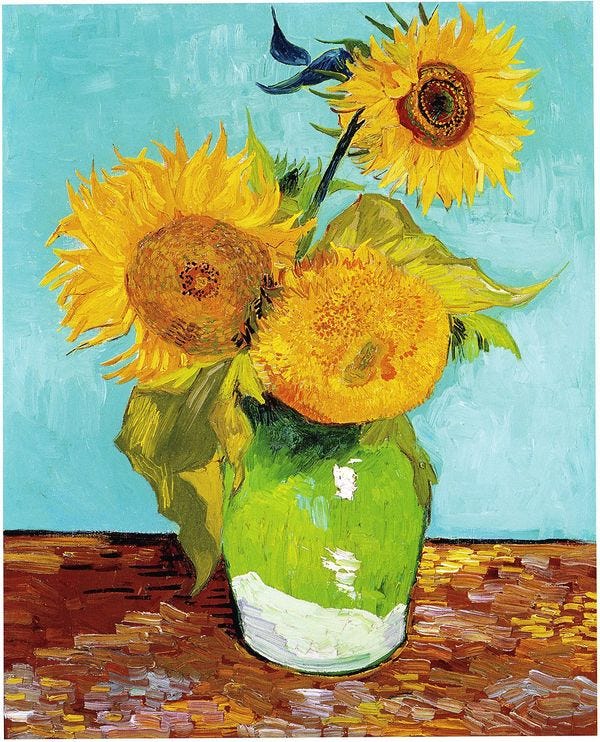Spatially, it makes sense that Diane Lane takes the vase. She only has two deep pockets to carry her things in—the jacket she wears is decidedly rooted in 2003 and has hip pockets like beer cozies. Not even a book could fit width-wise, but a handful of pencils would do perfectly. As she looks around and decides what to take, the vase is a natural fit for its receptacle. She doesn’t seem to have bundles of pens or loose cans of beer lying around.
Then again, she needn’t carry everything herself. She’s hired movers precisely for this purpose, and there they are, following her around the house. She could give them some boxes to fill their arms, and she considers it a few times. The couch? The bed? The rug? She decides to leave it all. She takes only books and the vase.
The heft must feel so satisfying in the palm of Diane Lane’s hand. She cups it, and perhaps she considers flinging it against the bedroom wall. But then—you can almost hear her thinking about it—she wouldn’t have a vase to call her own. So instead, she drips water across the wood floor and pops the vase into her perfect pocket.

Under the Tuscan Sun, 2003
As for me, I, too, take the books—crates of them in big piles because I don’t have time to sort them nicely. And the clothes from my closet, I wrap in garbage bags. I don’t even take them off the hangers. Also, the electric tea kettle. Also, the Apple TV. Also, all of the picture frames with our insides torn out.
What I don’t take is spices. I don’t take the bed, nor the dining room table, nor the couch or the bookshelves. I don’t take anything heavy because then I’d have to carry it, and also because it all feel dirty and charged, like it’s been soaking in the wet mess of his sweat. I leave the dishes.
I have three hours and no movers. I have my dad, an aunt, my new landlord who comes to the old house with spray bottles. The landlord’s day job is to clean out old meth dens. He comes to my old home prepared for the worst and this makes me wonder. If he expected my house to be as bad as a meth den, why did he accept me as a tenant?
I empty our home while eating a croissant and wearing a romper with no pockets at all. All of my vases are mason jars and I don’t take a single one.

"Bedroom in Arles," 1888. Vincent Van Gogh
Diane Lane takes her vase to the apartment for the divorced. “We have a doctor, a lawyer, and now a writer,” the landlord keeps saying. “Maybe you can do everyone’s suicide notes.” We don’t see the vase in the divorcée apartment. We have a sense that the apartment is not worthy of its dark blue and thick glass. I imagine it in Diane Lane’s coat pocket. A palm-sized indigo orb, perfect for a single gerber daisy or another thick-stemmed, flat-topped flower. It’s too good, too happy, for this place.
I take my books and my electric teakettle to the place where we were supposed to live together. It is not a divorcé apartment because it was meant to be our home, a together home. It has a yard. It has a vegetable garden to the side of the kitchen, one for me to plant and tend all summer. Instead of a vase, I have a new puppy. She digs up the grass and pees on the new rug.

Under the Tuscan Sun, 2003
Maybe the blue vase comes with Diane to Tuscany, but I have almost no memory of it. The online forums say it holds sunflowers. And that seems reasonable enough.
The vase appears at such an important moment earlier in the film that it should reappear later on. But in my memory, it doesn’t. Instead, it remains a vase for dumping water on the ex’s hardwood floors. The vase is a vehicle for revenge.
In the middle of July, a friend brings me a bouquet of sunflowers. I trim their stems and toss them in a new mason jar. The puppy sniffs them and considers ripping a few petals out with her teeth. Instead, she rolls on the new rug. I think about Diane Lane and the blue vase. It wouldn’t have been able to hold this many sunflowers if it tried.

"Lausanne" Sunflowers, 1888, Vincent Van Gogh



